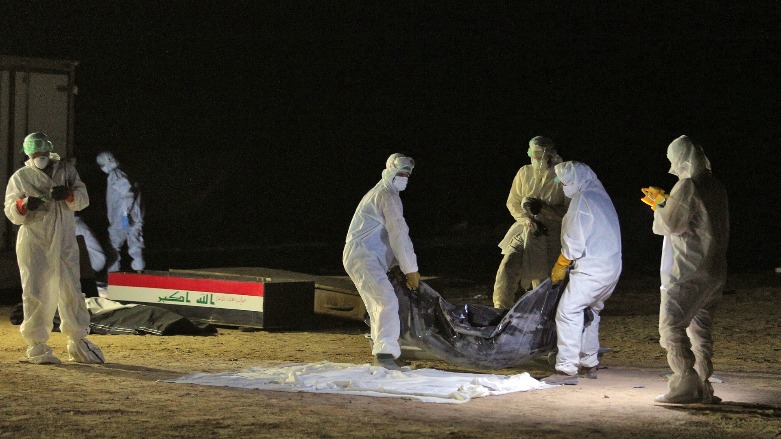WHO warns against religious gatherings as Iraq reports 3,672 new cases of coronavirus

ERBIL (Kurdistan 24) – Iraqi Ministry of Health and Environment on Saturday announced 3,672 new coronavirus infections and 49 deaths over the past 24 hours.
A ministry statement mentioned that health workers had conducted 18,424 tests in the last 24 hours, making for 2,330,386 such tests since the outbreak of the virus in Iraq.
According to official data, the total number of infections in Iraq reached 375,931, including 303,665 recoveries and 9,347 deaths.
Since late May, Iraq has been recording an increasingly higher number of cases amid tough economic conditions. Cases spiked after the federal government lockdown measures, including resuming trade with Iran, the original epicenter of the disease in the Middle East, due to close ties with China, where the virus was first reported in late 2019.
The World Health Organization (WHO) announced Saturday that Iraq had entered the third and so-called "societal outbreak" stage of the coronavirus. The global entity also warned of the spread of the virus throughout the country.
The WHO representative to Iraq, Adham Ismail, claimed that the Iraq outbreak is still in a stage under control. He added that Baghdad is working to contain it so that hospitalizations are within the health ministry's clinical capacity.
"As for the fourth stage, the country will be completely infected, which requires the state to take swift and severe measures such as total closure and complete isolation,” Ismail said.
WHO has warned of a possible increase in the number of people infected with the virus during the coming period, due to the continuation of gatherings and failure to follow preventive measures and health instructions.
The official also explained that with the upcoming Arbaeen religious gatherings in four days and the winter season may significantly increase the number of infections.
According to Ismail, the situation would increase the demand for healthcare facilities, potentially causing "a real problem," especially if the number of infections surpasses recoveries.
Editing by Khrush Najari
